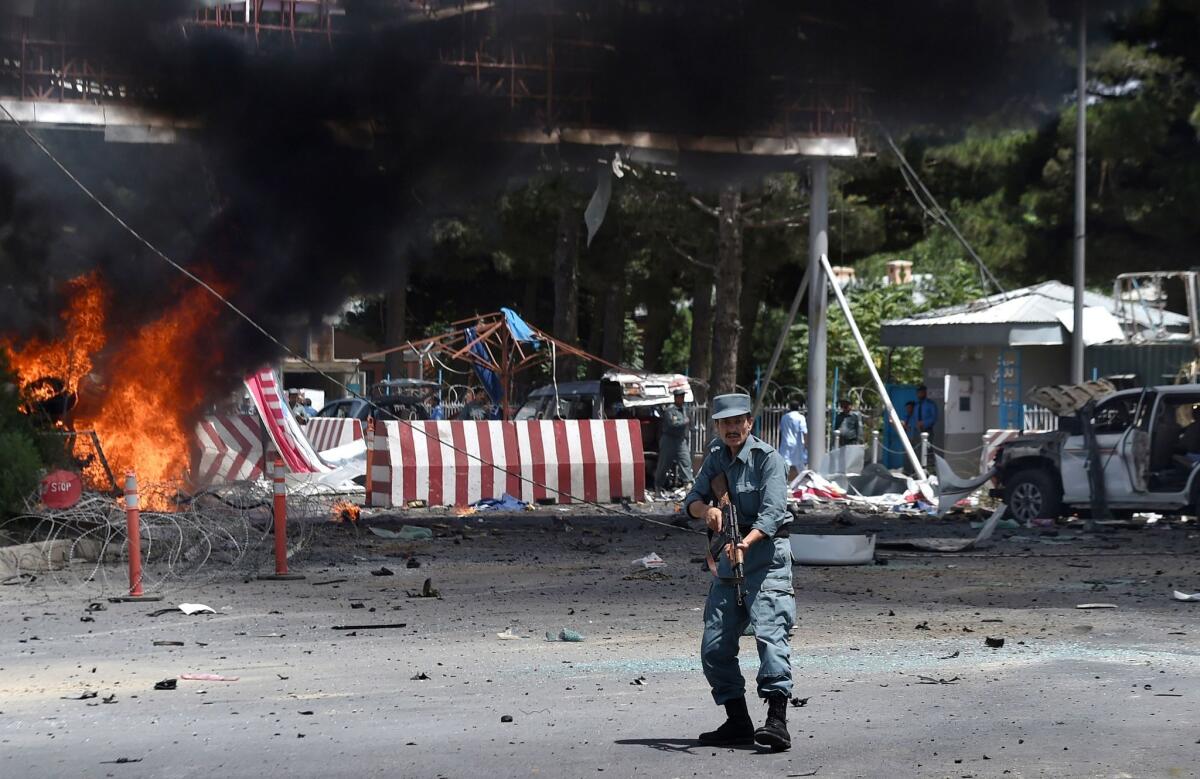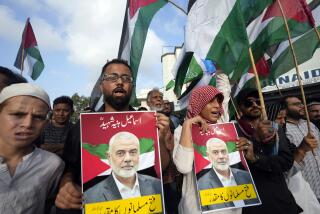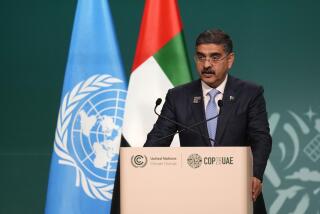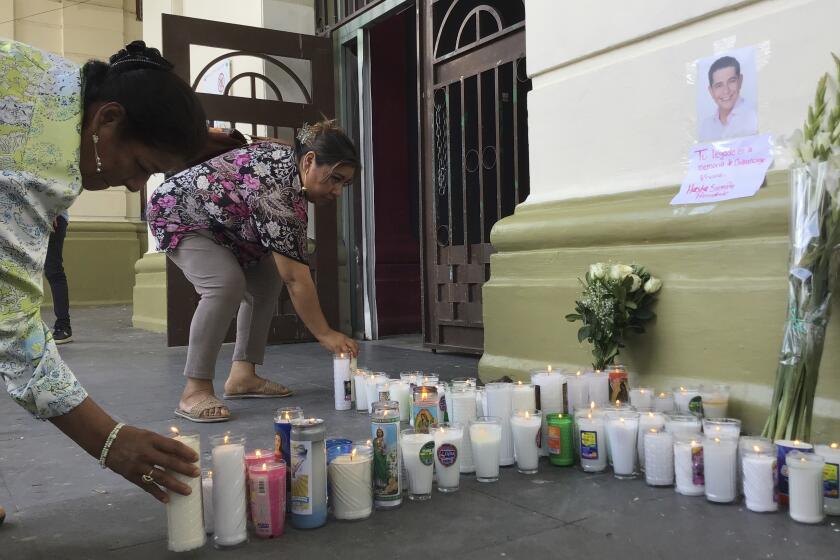Afghan leader to Pakistan: Rein in terrorists who attack my country

An Afghan policeman keeps watch at the site of a huge blast near the entrance of Kabulâs international airport on Monday.
Reporting from Kabul, Afghanistan â Amid one of the deadliest spurts of violence in months in Afghanistan, President Ashraf Ghani slammed Pakistan on Monday for failing to curb militant attacks originating from its soil.
Ghani, who had reached out to Pakistan in a bid to begin peace talks with Taliban leaders based there, signaled his frustration after a bloody four days that saw scores of people killed in Kabul and the northern province of Kunduz.
In the latest attack, a suicide bombing claimed by the Taliban killed at least five people and wounded more than a dozen others Monday near the civilian entrance to Kabulâs international airport. Witnesses told local media that a passing convoy belonging to international forces in Afghanistan was the likely target of the blast.
In a speech shortly after the attack, Ghani said Pakistanâs efforts to host peace talks between Taliban leaders and Afghan officials were meaningless as long as Taliban attacks continued to take civilian lives.
âWe had hoped for peace but we are receiving messages of war from Pakistan,â Ghani said. âWe donât want Pakistan to bring the Taliban to peace talks, but to stop the Talibanâs activities on their soil.â
Abdullah Abdullah, chief executive in Afghanistanâs unity government, added his voice to the criticism, saying of Pakistan: âThey said that Afghanistanâs enemy is Pakistanâs enemy. Which kind of enemy is this that they allow to commit crimes here and then hold meetings there?â
The Pakistani-brokered talks were called off following confirmation last month of the death of longtime Taliban leader Mullah Mohammed Omar. The two sides held just one meeting before the news broke of Omarâs death, which has widened the gap between insurgents who want to continue fighting the Afghan government and others who want to negotiate.
Afghans and their former president, Hamid Karzai, have long accused Pakistan of aiding the Taliban and other insurgent groups, but since taking office last year Ghani had sought to repair ties with Islamabad. Ghani agreed to allow some Afghan army cadets to train in Pakistan and signed an intelligence-sharing agreement, moves that were deeply controversial among Afghans.
His speech Monday appeared to mark the end of the Pakistani-led peace process, which the U.S. had supported. The Afghan leader said Kabul would take charge of negotiations with the Taliban and announced that an Afghan delegation would travel to Pakistan on Thursday to discuss counter-terrorism.
He called on Islamabad to announce a counter-terrorism plan after the meeting to demonstrate its commitment to Afghanistanâs security.
âThe decisions that Pakistani government will be making in the next few weeks will ⌠affect bilateral relations for the next decades,â Ghani said. âThe security of our people and the national interests of Afghanistan form the basis of our relationship with Pakistan. We can no longer tolerate seeing our people bleeding in a war exported to us from the outside.â
Ghani called Omarâs death a âsignificant developmentâ and said it had been discovered by Afghan intelligence. In a previous statement, Ghaniâs office said the former Taliban leader had died in Pakistan in April 2013. Other accounts say Pakistani intelligence officials, who have ties with the Taliban, broke the news to the Afghan government.
Latifi is a special correspondent.
More to Read
Sign up for Essential California
The most important California stories and recommendations in your inbox every morning.
You may occasionally receive promotional content from the Los Angeles Times.










